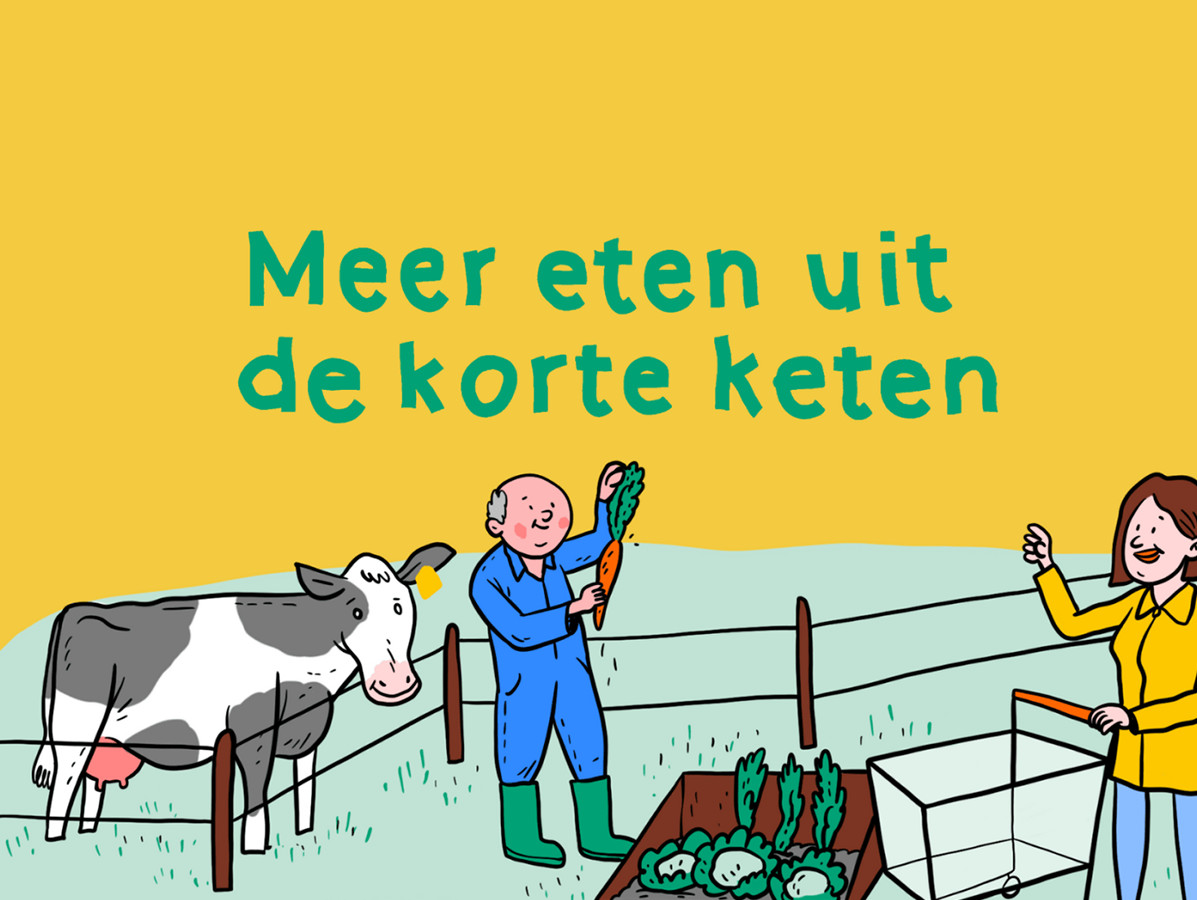
"It is possible to achieve a 25% market share of local food within five years," says Drees Peter van den Bosch, chairman of the Taskforce Korte Keten on the basis of the report 'More food from the short chain'. Currently, the market share of local food is less than 5% on average in the Netherlands, according to research by Wageningen University & Research.
Van den Bosch: "The trend towards more local food was already underway, but the corona crisis has only reinforced this momentum: sales in the short chain have quadrupled or even increased fivefold in a short period of time. The corona crisis has resulted in many great new initiatives in the field of local food. For example, many new food boxes were launched under the flag of 'Support Your Locals' and this week we are delivering the ten thousandth food package to families in difficulty, in cooperation with the Red Cross. But the short chain is much more than food boxes as crisis intervention. It's about fresh products that have not been processed or have been processed much less than the products in the supermarket and are therefore healthier. The products have travelled fewer kilometres and can therefore have a smaller CO2 footprint. Even after the crisis, we want this movement to continue".
Together with entrepreneurs, provinces and other stakeholders, the Taskforce Korte Keten has made an inventory of the bottlenecks and obstacles in the development of regional food systems in the Netherlands. This inventory can be found in the online publication 'More food from the short chain', which was received digitally on 16 June by the Minister of Agriculture, Nature and Food Quality Carola Schouten.
Minister Schouten: "I am very pleased with the Task Force's research ... We will continue to pay attention to the power of short chains. Together with the provinces and the Task Force, we focus on sharing knowledge - and where we can, we support entrepreneurs and link them together. I also want to look at the government's own food consumption, here too the chains need to be shorter".
The report 'More food from the short chain' shows that the bottlenecks for the short chain (data, logistics, multi-channel approach) can be removed by setting up regional partnerships between short chain entrepreneurs, and between entrepreneurs and provinces. The Taskforce Korte Keten sees a role for itself in the next two years to help realise these collaborations. This will prevent the same projects from being developed in different parts of the country, for example ordering platforms for local products. Drees Peter van den Bosch: "The momentum is enormous. If the ministry and the provinces go ahead now, a 25% market share within five years - a solid ambition - is absolutely achievable."
Source: © Taskforce Korte Keten